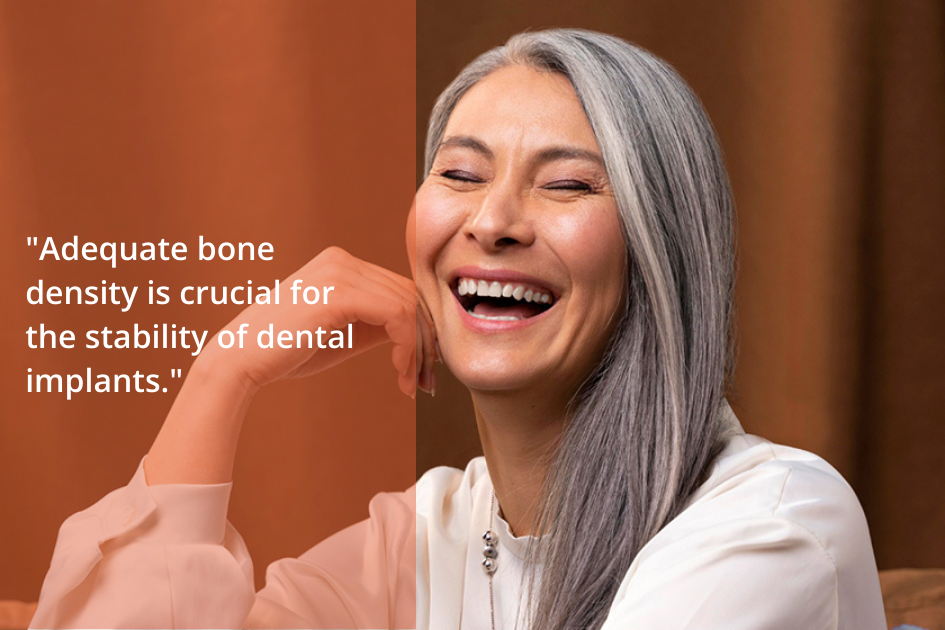When we think about who makes a good candidate for dental implants, several key factors come to mind. It’s not just about wanting a perfect smile; we need to take into account healthy gums, adequate bone density, and good oral hygiene. Non-smokers tend to have better outcomes, and minimal bruxism helps too. But what about the commitment to ongoing care and understanding the process involved? That’s where things get important, and it’s essential to delve further to secure successful implant integration. Let’s discuss how these elements play an important role in determining candidacy.
Healthy Gums
Healthy gums are essential for the successful placement and longevity of dental implants. As we evaluate candidates for dental implants, oral health becomes a primary focus.
Individuals with periodontal disease, such as gingivitis or more advanced stages of gum disease, may not be good candidates initially. Infections and inflammation can compromise the implant’s stability and integration with the jawbone.
Specialists monitor and improve gum health before and during the implant process to guarantee excellent outcomes. Healthy gums provide a solid foundation, reducing the risk of complications.
Hence, maintaining good oral hygiene and addressing any gum issues promptly are critical steps in becoming a suitable candidate for dental implants. By prioritizing gum health, we enhance the chances of long-term implant success.
Adequate Bone Density
In addition to healthy gums, sufficient bone density in the jaw is essential for the successful placement and long-term stability of dental implants. A good candidate for dental implants must have enough bone to support the implant fixture. Strong jawbone support is vital to prevent implant failure and guarantee proper integration.
Bone density plays a pivotal role in determining if a patient is an ideal candidate for dental implants. If there’s bone loss, additional procedures like bone grafting might be necessary to enhance jawbone health. Ultimately, having sufficient bone density ensures the implants have a solid foundation, promoting both their functionality and longevity.
Good Oral Hygiene
Maintaining good oral hygiene is crucial for the successful placement and longevity of dental implants. We must uphold strict oral care routines, including regular brushing and flossing, to prevent infections and gum disease, which can compromise the implant process.
Tooth loss often results from poor oral hygiene, making it essential that a good candidate for dental implants is dedicated to maintaining their oral health. Regular visits to family dental clinics every six months help monitor and address any potential dental problems promptly.
Non-Smokers
Non-smokers are prime candidates for dental implants due to their enhanced ability to heal and lower risk of complications. Tobacco use negatively impacts oral health and greatly reduces the success rates of dental implants. By avoiding smoking, non-smokers benefit from an improved healing capacity, which is essential for the integration of the implant with the jawbone. This enhanced healing leads to higher success rates for dental implants.
Additionally, maintaining excellent oral health is important for overall well-being, making smoking cessation a key factor in achieving successful implant outcomes. In contrast, smokers face slower healing and increased risk of implant failure. As a result, non-smokers, with their superior oral health and healing abilities, are considered good candidates for dental implants.
Minimal Bruxism
Patients with minimal bruxism are ideal candidates for dental implants because they exert less stress on the implants, reducing the risk of complications.
Bruxism, or teeth grinding, places excessive pressure on dental implants, potentially leading to implant failure over time. By having minimal bruxism, patients decrease the likelihood of undue stress on the implants, thereby maintaining their integrity and stability.
Custom-fitted nightguards can further protect the implants from any residual grinding. Managing bruxism effectively is crucial to guarantee the longevity of implants.
Unlike tobacco products, which can negatively impact oral health and implant success, minimal bruxism represents a favorable condition for those considering dental implants as a viable solution for tooth replacement.
Commitment to Care
Maintaining the integrity of dental implants requires a steadfast commitment to rigorous oral hygiene and regular dental check-ups. Good oral care includes daily brushing and flossing, which are essential for preventing plaque buildup and ensuring healthy dental implants.
Regular check-ups every 6 months are vital for monitoring the condition of the implants and the overall oral environment. Based on individual needs, some patients might require more frequent visits for specialized maintenance.
Sound home care combined with routine cleanings at the dental office helps maintain the longevity of the implants. Regular dental visits allow for early detection of potential issues, enabling timely interventions. As such, a commitment to this regimen is paramount for successful, long-lasting dental implants.
Understanding the Process
Understanding the dental implant process involves recognizing the various stages and their significance in achieving a successful outcome.
As a candidate for dental implants, it’s crucial to understand that the process begins with a thorough evaluation of the bone structure. Our dentist may recommend imaging studies to assess bone density and quality.
Surgical placement of the implant root into the jawbone follows, which must heal and integrate with the bone, a phase known as osseointegration. This process can take several months. Patients who use tobacco products should note that smoking can impair healing.
Once the implant is stable, the final part of the implant, the artificial tooth, is affixed. Dental implants restore functionality and support better oral health by withstanding much pressure.
Conclusion
In the garden of oral health, we’re the gardeners nurturing a thriving landscape. With healthy gums as fertile soil and strong bone density as the sturdy trellis, we plant the seeds of dental implants.
By maintaining good oral hygiene and avoiding the weeds of smoking and bruxism, we cultivate a flourishing smile. Our dedication to care and consultation with dental experts guarantees our garden remains robust.
Let’s embrace this process, transforming our oral health into a blooming sanctuary. Don’t wait, take the first step towards a healthier smile. Contact our dental experts at Family Dental of Teravista in Georgetown, TX today to discuss the suitability of dental implants for you.













